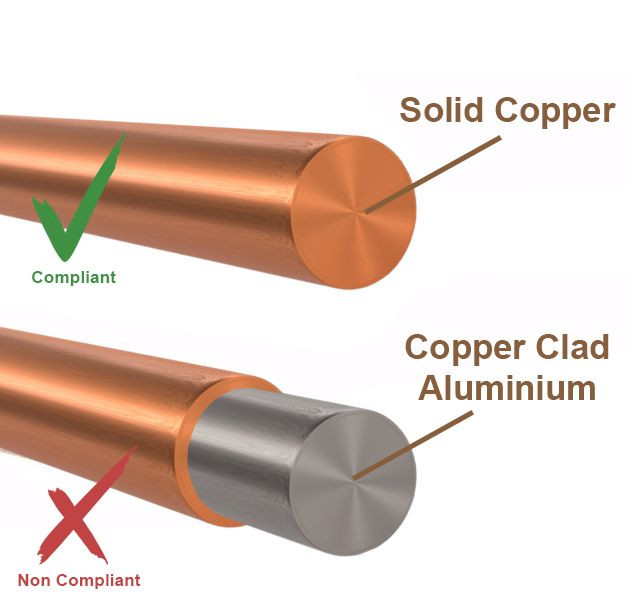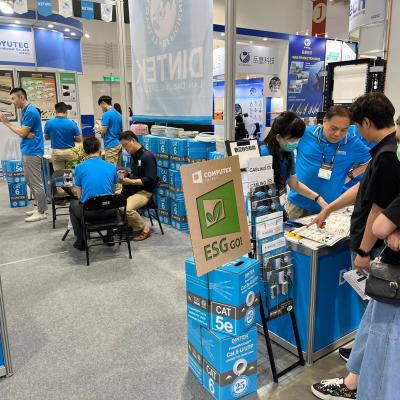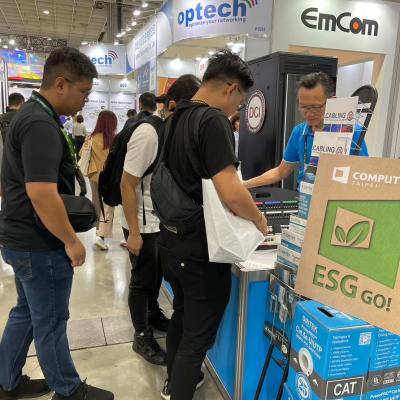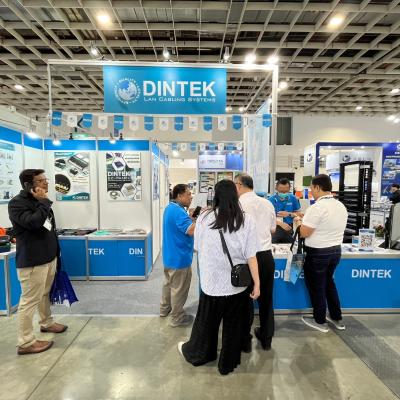
CCA cable. Why this cable is NEVER a good choice.
If you have ever taken a look into the viability of using CCA cable for Network cabling, you will have noticed what appears to be good value in what is known as Copper Clad Aluminum cable. Notably, marketing of this cabling makes the following claims:
That this is a legitimate lower-cost alternative to solid copper data cables.
That this cable meets the performance requirements of your network by being sold as Category 5e or Category 6, citing ANSI/TIA compliance on the box and the cable printing.
That it is safe to use, even with Under Writer Laboratories (UL) Certification on the outside of boxes and even printed on the side of the cable.
Let us be clear on this. None of these claims are true. So, let's look at the real truth about CCA cable, and debunk some of these bogus claims.
Copper-clad aluminium cable wire (CCA) is an electrical conductor composed of an inner aluminium core and outer copper cladding.
Compared to pure copper wires, CCA wires are cheaper and weigh less, which may seem attractive to buyers, however, there are a number of reasons why going for the cheaper option does not pay off.
Firstly, and most importantly, CCA cable is not approved for Ethernet networking usage by any regulatory body. Any supposed compliance claims are false. Only stranded or solid pure copper conductor cables are approved for Ethernet data cabling by ANSI/TIA, ISO and EN standards.
CCA cable appears to be the same as solid or stranded copper cable from the outside, however, the difference with solid copper lies in how the conductor wire itself is constructed.
A CCA cable conductor is copper-coated aluminium.
The tensile strength of a CCA wire is weaker than that of a pure copper wire, so CCA wires are more vulnerable, posing significant risks of the conductors breaking during installation. Aluminium is very reactive to the environment and will oxidize quickly which can cause problems when terminating and the end of the aluminium is exposed to air. Copper also oxidizes, but when copper oxidizes, the resultant copper oxide is highly conductive, whereas aluminium is not. This will create a termination that will eventually fail.
CCA cable has much higher electrical resistance than pure copper which affects its function in a couple of ways.
Firstly, it is not as capable of carrying Ethernet data signals over distance as resistance increases attenuation causing signal strength to lessen more over shorter distances.
CCA cable is also not suitable for PoE (Power Over Ethernet), particularly for the latest versions of PoE which provide for higher wattage and therefore higher currents. The higher resistance of CAA conductors will cause them to heat up, providing a higher chance of a fire, or potentially damaging PoE devices on the other end due to the inability to supply enough current.
So how can you identify CCA cable?
It is true, CCA cable is less expensive than solid copper cable, because aluminium is cheaper than copper, so if you are offered a compliant cable that is at a price that seems too good to be true.. then it probably is too good to be true.
CCA cable is noticeably more brittle. It can be easily identified by looking for the silver color at the end of the conductor or by scraping away the thin copper surface on the conductors to reveal aluminium.
Another warning sign is weight. Boxes of CCA cable weigh substantially less than solid copper cables. CCCA's free CableCheck™ mobile app (search "CCCA" from the Apple App Store or from Google Play) includes approximate correct box weights to help identify the use of CCA conductors in place of solid copper conductors.
While some CCA cables may be accurately labeled as such, when a CCA cable is labeled as a category cable (i.e., category 5e, 6 or 6A) or as being CMR or CMP rated, it is counterfeit cable and might not comply with industry performance standards or pass UL fire safety testing, posing an even greater risk.
If you happen to come across CCA cable with invalid marks or legends, you can report those cables through the CCCA website.

Can you purchase CCA cable from DINTEK? NO
The answer to this question is very easy. NO. DINTEK has never and will never create or sell CCA cables because our fundamental ideal is to always produce and sell the highest quality product possible to our customers. Their trust in DINTEK is that they can always rely on receiving quality in the products that they purchase.
For more information on DINTEK cabling, contact us at







